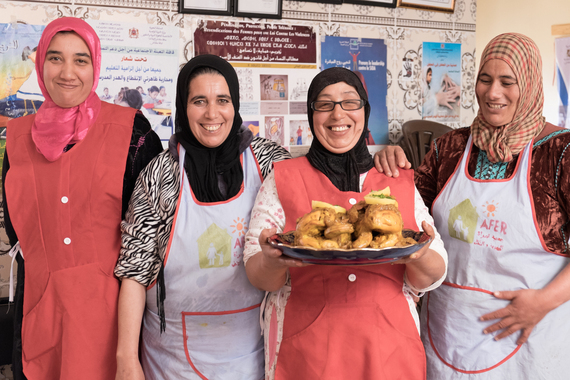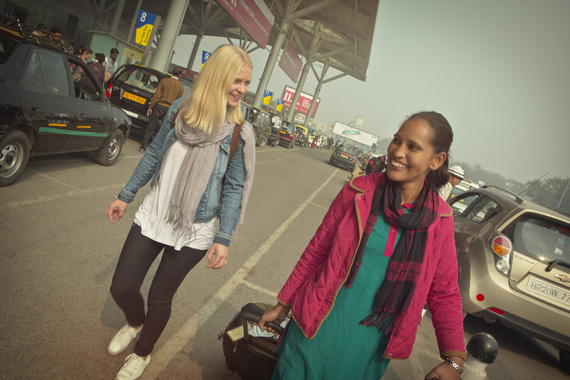by Bruce Poon Tip
Founder, G Adventures
Whether you're dreaming of a beachfront getaway, researching adventures to stretch your body and mind, or comparing family-friendly vacations for summer break, chances are, you're a woman.
That means you have more influence and power to affect the travel industry than anyone else.
Women are the super engines of the travel and tourism economy. They make or influence 75-85 percent of all consumer purchasing decisions, including those around travel, an industry that employs one out of every 11 people working worldwide - 66 million of them women.

But there's a disconnect between women's buying power and women's economic empowerment in travel and tourism.
Women make up nearly 70 percent of the global travel workforce but too few of them are in ownership or leadership roles. Their voices are largely unheard.
In my company we are doing our part to bring more female talent into the tourism supply chain and grow small female-owned and -led businesses in a variety of ways and places.
In Delhi, India we make a radical difference in the lives of women by employing them as chauffeurs for Women on Wheels, while offering our female travelers access to safe ground transport options.
In the Sacred Valley of Peru, Inca women are capitalizing on the skills they have with farming, dying and weaving alpaca wool so they can maintain a traditional way of life and contribute income to support their families. Conscious travelers buying their handicrafts make this income possible.
As we observe International's Women's Day this week, here are four ways you can use your passport for positive impact:
1. Seek out companies that support female-run businesses, especially those that offer access to training for women and girls. Women are often the first to be excluded from formal education opportunities in many developing countries, with just 30 percent of girls advancing to secondary school. When possible, give your business to those who support small, female-led cooperatives that sell handicrafts made by women, or micro and small enterprises owned by women such as local restaurants, tours and souvenir shops that allow them to reinvest profit back into their community.
2. Give organized group travel a try, but avoid "all-inclusive" resorts. Most will rob you of the local experience and scare you into believing that the world outside their property is unsafe. That prevents money from spreading out into the community, where local women work. Small group tours have the advantage of offering an expertly curated travel experience with the added security of people who are looking out for you.
3. When researching a potential tour operator, ask about the company's leadership. Do they have women in management, and if so, to what degree? In my company, 58 percent of our global workforce is female and women hold key roles on my leadership team. If other travel providers can't or won't share their information with you when asked, it's a sign that it's just not important to them. Move on.
4. Get out there and travel - ideally to a country different from your own. Being a customer is a great way to empower women at work. This is especially true in developing countries where tourism provides the great majority of job opportunities. Don't be afraid to travel solo or explore unfamiliar places. By using your hard-earned paycheck to broaden your worldview, you can help distribute wealth.
The stamp in your passport reminds us of where we've been, but not why we went. We travel because we're looking for something meaningful, something that matters.
No other sector spreads wealth and jobs across poor countries as well as this business that I love. It provides career opportunities, income and a source of dignified work for women, who pass those benefits on to communities in which they live.
That's meaningful and I can tell you from the women I've met in the countries where we work that it matters more than anything.
